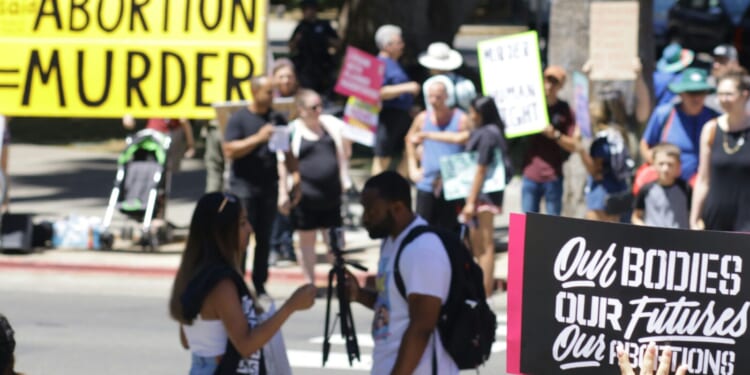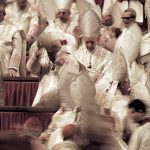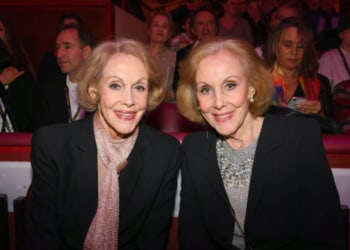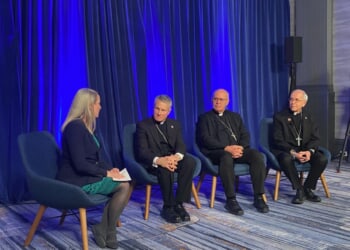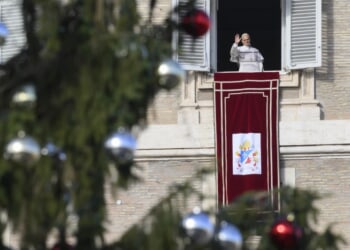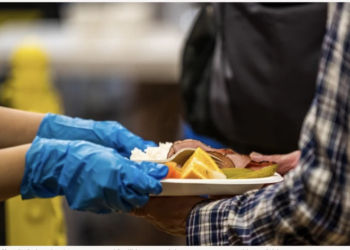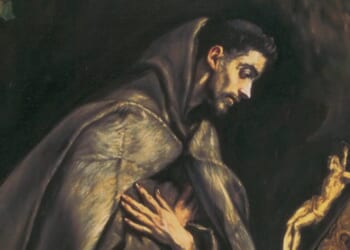Bishop Robert Barron was delighted when he learned the name of our new pope, Leo XIV.
“I was very pleased when I heard his name,” Barron said. “He chose someone who indeed is reverenced by more liberal Catholics and more conservative Catholics.” Bishop Barron suggested the name might indicate a desire to serve as a bridge builder.
Perhaps our new pope can also help lessen the great divide between two traditionally estranged groups in the United States: prolife and social justice Catholics.
From a political perspective, people involved in social justice ministries are generally strong Democratic voters. They see the party’s platform as more closely aligned to the interests of the populations they serve, such as immigrants, refugees, and families facing poverty and social injustice.
Prolifers see the issue of protecting human life in the womb as the foundation of all social justice. This leads them to support conservative candidates and policies that limit abortion and reject the public funding of abortion services.
Sadly, viewing these two valid Catholic perspectives as opposed to one other has led us to esteem our political affiliations more than the profound communion we share as brothers and sisters in Christ.
Is there a way to embrace a third perspective—one that sees the issue of abortion from both a social justice and a prolife perspective?
Sexual Abuse, Trauma & Abortion
Forty years ago, we founded Rachel’s Vineyard, an international ministry that helps people heal from the emotional and spiritual wounds they experience after an abortion.
At first glance, abortion may appear to be the most compassionate choice for those facing an unplanned pregnancy and who have histories of abuse, family dysfunction, and poverty. Tragically, we have learned that the unfolding consequences of the procedure can be especially devastating for this population of women.
In reality, the invasive and painful experience of an abortion can re-enact the physical and emotional violation of sexual abuse and other trauma women have endured. And after an abortion, they often suffer an intensification of pre-existing symptoms such as addictions, anxiety, and depression.
Since 1973, more than 20 million Black children have died in the womb. In New York City alone, where Planned Parenthood is headquartered, almost half of all Black pregnancies end in abortion.
When we consider the rates of sexual abuse reported among these same women, we find a group that is especially vulnerable to post-abortion complications. One in four Black girls will be sexually abused before the age of 18. Over one-third of Black women will experience some form of sexual assault, coercion, and unwanted sexual contact during their lifetime.
Lay and religious Catholics involved in social justice outreach can attest that it is, indeed, challenging to face the scope and complexity of the problems confronting poor families. What is often misunderstood is how abortion, working in a kind of toxic synergy with previous abuse, can exacerbate a woman’s pre-existing trauma.
In these cases, women are left with increased vulnerability to ongoing exploitation, dysfunction, and abuse in their relationships. This leads to a breakdown in family life, which leaves women and their children vulnerable to predatory relatives, partners, and friends.
Onawu Pickett is an ordained Christian minister. Pickett grew up the daughter of migrant farm workers who met at a cotton work camp in California. She witnessed abusive relationships within her family, experienced sexual abuse and rape, and later, aborted two of her children. Keep in mind that almost half of all abortions in the U.S. are repeat abortions.
The cycle then continues: more abuse, more trauma, more abortions. The emotional and spiritual recovery process in abortion healing programs can significantly reduce destructive symptoms and behaviors—and provide a solid foundation for building a healthier relationship with God, spouses/partners, and living children.
Rev. Pickett attended a Rachel’s Vineyard retreat and found great peace and healing. She now has a passion to help bring awareness to women and men, church leaders, and government officials about the need for healing from abortion.
“My prayer is that we no longer be enslaved to poverty and violence; especially in the womb,” she explains, “not only for African Americans but for human beings as a whole.”
What’s Next?
The election of Pope Leo XIV makes this an advantageous time to bridge the divide between us—to bring both groups together to explore if there is common ground where respectful dialogue can begin. Let’s discover ways to share our stories and the stories of the people we serve—and bless and support one another’s work.
Christ is our Lord and Savior, and we are all brothers and sisters in Him, despite our differences. United in faith, we can join what was disconnected and forge a stronger union—an eternal one, far outlasting our political affiliations.
Author’s Note: Kevin Burke, MSS, and Theresa Burke, Ph.D., are the founders of Rachel’s Vineyard Ministries. Theresa is the author of Forbidden Grief: The Unspoken Pain of Abortion and Kevin, Tears of the Fisherman, Recovery for Men Wounded by Abortion.
Photo by Aiden Frazier on Unsplash

